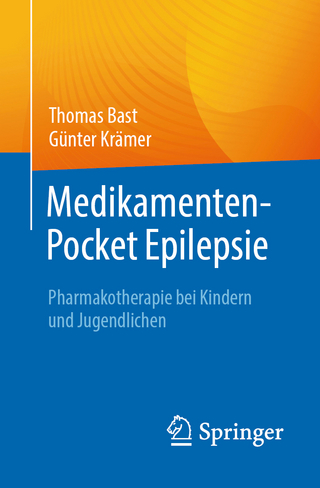
The Biology of Alcoholism
Kluwer Academic/Plenum Publishers (Verlag)
978-0-306-41053-6 (ISBN)
- Titel ist leider vergriffen;
keine Neuauflage - Artikel merken
The operational evidence for this is perhaps more evident in alcoholism than in other syndromes. For example, the general social indifference of many Asians to alcohol may reflect the presence of an atypical isoenzyme of alcohol dehydrogenase rather than some independently derived cultural norm.
of Volume 7.- 1 Genetic Factors in Alcohol Abuse: Animal Models.- Animal Models in Alcohol Research.- The Issue of Comprehensiveness.- The Issue of Phylogenetic Generalizability.- A Quantitative Genetic Model.- Some Basic Definitions.- Polygenic Influence.- Genetically Defined Populations in Alcohol Research.- Inbred Strains.- Heterogeneous Populations.- Selective Breeding.- General Principles.- Summary.- References.- 2 Genetic Factors in Alcoholism.- Common Methodological Problems in Research on Genetic.- Factors in Alcoholism.- Diagnosis.- Nosology.- Age of Onset.- Sex Differences.- Family Studies.- Twin Studies.- Adoption Studies.- Association and Linkage Studies.- Models of Transmission.- What Is Transmitted Genetically to Account for Development of Alcoholism.- References.- 3 Acute Pharmacological Actions of Ethanol on the Central Nervous System.- Membranes.- Membranes as Sites for Ethanol Action.- Membrane-bound Enzymes: Regulation of Ion Permeability and Negative Charge.- Effects of Ethanol on Brain Calcium.- Calcium Content, Binding, and Fluorescence Probe Analysis.- Calcium and Behavioral Response to Ethanol.- Calcium Transport in Synaptic Nerve Endings.- Calcium-dependent Membrane ATPase.- Membrane-dependent Neurotransmitter Activity.- Role of Calcium as a Central Messenger.- Effects of Ethanol on Neurotransmitter Systems.- Summary.- References.- 4 Ethanol and Brain Mechanisms of Reward.- Substrates of Brain Stimulation Reward.- Anatomy.- Pharmacology.- Other Considerations.- Substrates of Drug Reward.- Psychomotor Stimulants.- Opiates.- Ethanol.- Interactions of Drugs of Abuse with Brain-Stimulation Reward.- Psychomotor Stimulants.- Opiates.- Ethanol.- Speculations.- Dopamine Pathways of Reward, Memory Formation, and Ethanol.- Anxiety and Ethanol.- References.- 5 Ethanol as a Reinforcer: Comparison with Other Drugs.- Intravenous Drugs as Reinforcers.- Continuous Reinforcement Schedules.- Effects of Drug Deprivation.- Ratio Schedules: Substitution Procedures.- Intragastric Drug Self-administration.- Ethanol and Other Drugs as Reinforcers by the Oral Route.- Drinking of Drug Solutions in the Absence of Inducing Conditions.- Inducing Schedules of Drug Overdrinking.- Oral Drugs as Reinforcers.- Summary and Conclusions.- References.- 6 A Behavioral Analysis of the Reinforcing Properties of Alcohol and Other Drugs in Man.- Reinforcement and the Analysis of Behavior.- Clinical Research on Drug Effects.- Behavioral Effects of Alcohol and Drugs.- Drug Effects in Naive Users.- Clinical Studies of Alcohol Use and Abuse.- Clinical Studies of Opiate Use and Abuse.- Clinical Studies of Stimulant Use and Abuse.- Conclusions: Behavioral Effects of Alcohol and Drugs.- Control of Behavior by Aversive Consequences.- Narcotic Antagonist Self-administration.- Electric Shock Self-administration.- Implications of the Control of Behavior by Aversive Consequences.- Substance Abuse: Similarities and Differences.- Stimulus Self-administration: A Hypothesis.- Biological Consequences of Drug and Alcohol Use.- Conclusions.- References.- 7 Neurochemical Aspects of Tolerance to and Physical Dependence on Alcohol.- Definitions of Functional Tolerance and Dependence.- Factors Modulating Ethanol Tolerance Development.- Effects of Ethanol Administration on Neurotransmitters.- Catecholamine Systems.- Serotonergic Systems.- Cholinergic Systems.- GABA and Glutamate Metabolism.- Cyclic Nucleotides.- Calcium Metabolism.- Neurotransmitter Receptors.- Role of Neuronal Membranes in Development of Tolerance and Dependence.- Role of Condensation Products in Ethanol Tolerance and Dependence.- Conclusions.- References.- 8 Metabolic Mechanisms in Tolerance and Physical Dependence on Alcohol.- Metabolic Tolerance.- Adaptive Changes in the Rate of Ethanol Elimination.- Adaptive Changes in Acetaldehyde Metabolism.- Adaptive Changes in the Redox State.- Metabolism Mechanisms in Physical Dependence.- Metabolism of Ethanol in Brain.- Reactions of Aldehydes.- References.- 9 Endocrine Mechanisms in Tolerance to and Dependence on Alcohol.- Preface.- Conceptual and Methodological Issues.- Alcohol-Endocrine Interactions.- Hypothalamic-Pituitary-Gonadal Axis.- Hypothalamic-Pituitary-Adrenal Axis.- Hypothalamic-Pituitary-Thyroid Axis.- Growth Hormone.- Prolactin.- Vasopressin.- Oxytocin.- Conclusions.- References.- 10 The Relationship of Tolerance and Physical Dependence to Alcohol Abuse and Alcohol Problems.- A Consideration of the Regulation of Alcohol Consumption.- Tolerance.- Definition of Tolerance.- Empirical Studies Bearing on the Relationship of Tolerance to Alcohol Consumption and Alcoholism.- Initial Differences in Tolerance.- Acquired Differences in Tolerance.- Summary and Implications of Knowledge Concerning Tolerance.- Physical Dependence.- Definition of Physical Dependence.- Empirical Studies Bearing on the Relationship of Physical Dependence to Alcohol Consumption and Alcoholism.- Physical Dependence as a Criterion of Alcoholism.- Tolerance, Physical Dependence, and Craving.- Implications for Prevention and Treatment.- Important Generalizations About Acquired Tolerance and Physical Dependence.- Potential Applications.- Conclusion.- References.- 11 Brain Dysfunction and Alcohol.- Structural Brain Damage.- Incidence of Brain Damage.- The Relationship between Structural Brain Damage and Neuropsychological Tests.- Reversibility of Structural Damage.- Summary.- Evoked Potentials.- Acute Alcoholization.- Chronic Alcohol Abuse.- Concluding Remarks.- References.- 12 Cognitive Deficits in Alcoholics.- Short-term Effects of Alcohol Ingestion.- Memory Deficits in Intoxicated Alcoholics.- Other Cognitive Deficits in Intoxicated Alcoholics.- Long-term Effects of Alcohol Ingestion.- Global Measures of Intellectual Integrity.- Abstract Reasoning.- Perception.- Learning and Memory.- Recovery of Function.- Theoretical Considerations.- Right Hemisphere Hypothesis.- Frontal System Hypothesis.- Accelerated Aging Hypothesis.- Continuity Hypothesis.- Possible Acquired Limitations in Information Processing.- References.- 13 Prenatal Effects of Alcohol Abuse in Humans and Laboratory Animals.- Historical Introduction to Alcohol Abuse in Pregnancy.- Intrauterine Effects of Maternal Alcohol Abuse in Humans.- The Fetal Alcohol Syndrome.- Prevalence of the Fetal Alcohol Syndrome.- The Continuum of Reproductive Deficit Associated with Maternal Alcoholism.- Associated Risk Factors in Intrauterine Alcohol Effects.- Areas for Future Research.- Animal Models of Maternal Alcohol Use and Abuse.- Theoretical Considerations.- Mechanisms.- Alcohol Effects on Offspring.- Maternal Factors.- Paternal Factors.- Areas for Future Research.- The Importance of Fetal Alcohol Syndrome to Problems of Female Alcohol Abuse.- Conclusions.- References.- 14 Amethystic Agents in the Treatment of Alcohol Intoxication.- Available Antagonists of Centrally Active Drugs.- Naloxone.- Other Antagonists.- Putative Alcohol Antagonists.- Substances Which May Alter Nerve Function.- Substances Which Enhance Ethanol Elimination.- Substances Which May Affect Acetaldehyde.- Substances or Conditions with Unknown or Multiple Mechanisms.- Conclusions and Recommendations for Future Study.- References.
| Erscheint lt. Verlag | 1.1.1983 |
|---|---|
| Zusatzinfo | biography |
| Sprache | englisch |
| Gewicht | 1107 g |
| Themenwelt | Schulbuch / Wörterbuch |
| Medizin / Pharmazie ► Medizinische Fachgebiete ► Neurologie | |
| ISBN-10 | 0-306-41053-2 / 0306410532 |
| ISBN-13 | 978-0-306-41053-6 / 9780306410536 |
| Zustand | Neuware |
| Haben Sie eine Frage zum Produkt? |
aus dem Bereich


